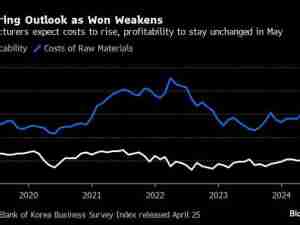Following are other key issues to be taken up by the panel, which will call as witnesses senior Obama administration trade and finance officials and figures from industry:
Subsidies to State-Owned Enterprises
The state-owned enterprises that dominate China's economy enjoy a range of government subsidies. Business costs such as land, energy, resources and loans are provided to state firms on preferential terms not available to foreign firms or to private Chinese firms.
Many U.S. experts believe these subsidies do far more to distort competition in China's market and in the markets of third countries than an undervalued Chinese currency.
The United States recently took China to task at the World Trade Organization for its failure to declare nearly 200 types of subsidies in a required report to the WTO.
Indigenous Innovation
Foreign businesses have grown increasingly concerned about China's "indigenous innovation" policies, aimed at fostering the creation of home-grown technology and know-how and reducing Chinese firms' dependence on foreign technology and companies.
U.S. companies worry that indigenous innovation policies will force them to transfer technology development and ownership of intellectual property to China in exchange for allowing them to participate in the country's huge government procurement market.
President Hu Jintao has indicated goods produced by Chinese affiliates of U.S. and other foreign firms would be considered indigenous innovation products eligible to compete for procurement bids with the national and with local governments.
The Obama administration and U.S. businesses say they want stronger follow-up from Beijing to ensure that commitment is kept.
Regulatory Barriers & Favortism
Beginning with statutory requirements that most major sectors of China's economy -- from autos to energy to telecommunications -- be dominated by the state, U.S. industry says it faces discriminatory regulations that promote state-owned enterprises at the expense of private and foreign firms.
A related complaint is that China lacks regulatory transparency and does not spell out critical rules governing operations in China.
The Obama administration last week sent China a long and detailed formal list of questions on Beijing's policies on controlling the Internet. Washington said China's Internet policies resulted in the blockage of the websites of U.S. businesses, impeding their ability to serve customers in China.
Pirancy & Counterfeiting
China has long taken heat from trade partners over widespread unauthorized copying of software, music, films and other products, from luxury apparel to industrial machinery.
The International Intellectual Property Alliance, which represents U.S. copyright industry groups, estimated U.S. trade losses in China due to piracy at $3.5 billion in 2009.
China says it is making progress against intellectual property piracy and launched many enforcement campaigns to stamp out bootlegged books, music, DVDs and software -- all of which all are openly available. China remains on the U.S. "priority watch list" of countries deemed to have serious copyright and trademark theft.
Rare Earth Materials
China, which controls 97 percent of the world's rare earth supplies, alarmed its trading partners in 2010 by restricting exports of the minerals, which are used in a variety of clean energy and high technologies.
In some cases, foreign firms have come under pressure to relocated their businesses that use rare earths to China in exchange for access to those minerals.
China has defended the restrictions as measures to manage supplies and control pollution associated with rare earth production and to increase the domestic share of the value added in










